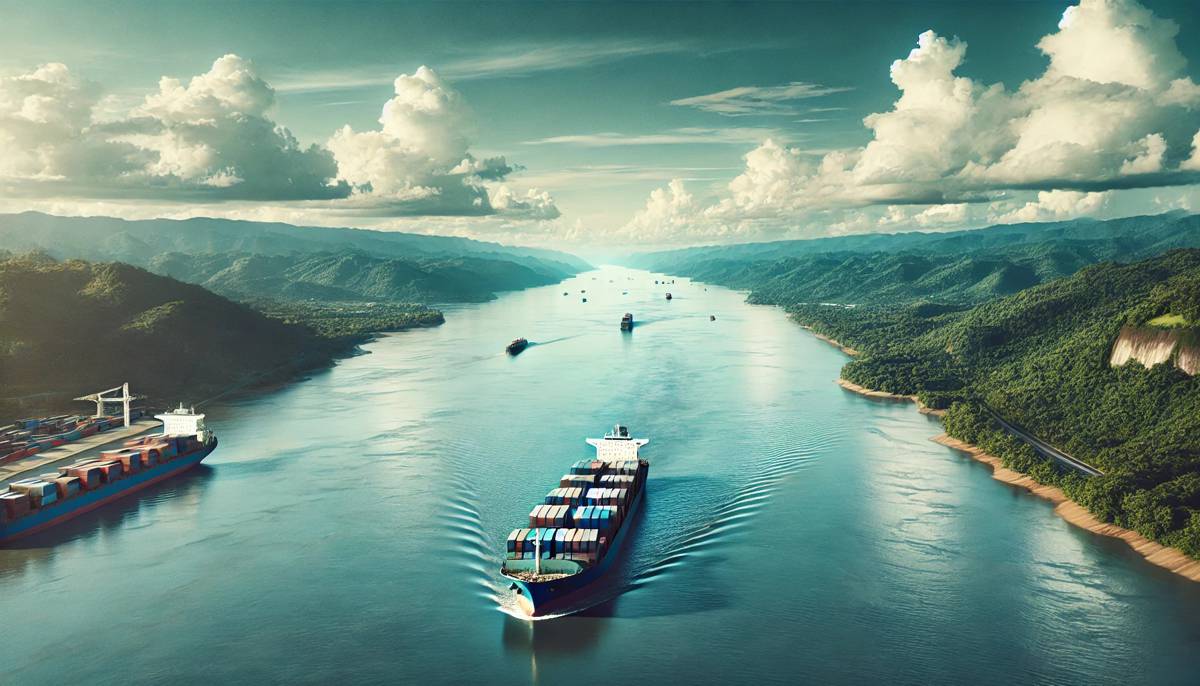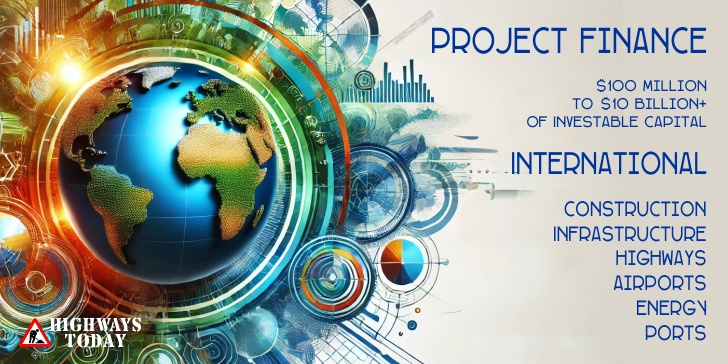Boosting Trade in Brazil with the Madeira River Waterway Concession
The National Waterway Transportation Agency (ANTAQ) in Brazil has unveiled the latest developments in the concession project for the Madeira River Waterway, an essential trade artery running through Rondônia and Amazonas.
As one of the country’s most critical transportation routes, this waterway plays a pivotal role in bolstering the economy by ensuring the efficient flow of goods and supplies, especially to the state’s remote areas. The project promises not only to enhance transportation efficiency but also to alleviate some of the most pressing logistical challenges in the region.
Enhancing Trade Routes in Rondônia
The Madeira River has long been a crucial part of Brazil’s logistics infrastructure, particularly in Rondônia and Mato Grosso, where agriculture dominates the economy. The concession will enable larger vessels to transport significantly more cargo year-round, even during the dry season, by maintaining the river’s depth at a minimum of 3.5 metres, with a draft of 3 metres. This will allow vessels to carry heavier loads and operate round-the-clock, offering an immediate boost to shipping efficiency.
During the dry season, when water levels typically drop, ensuring navigability has always been a challenge. By dredging and implementing better signalling and beaconing services, the concession project aims to eliminate these seasonal disruptions. ANTAQ estimates that shipping costs will be reduced by as much as 24%, a massive saving that could transform the local economy. In a region where overland routes are frequently unreliable, waterways represent the most cost-effective and scalable solution for transporting bulk goods such as soybeans, corn, and fuel.
Meeting the Demand for Key Commodities
For states like Rondônia and Mato Grosso, the Madeira River Waterway is a lifeline. It carries vast quantities of grains, liquid bulk, fertilisers, vehicles, and fuel, providing essential supplies for local industries. The project’s improved infrastructure will be able to handle this flow more efficiently, thereby preventing fuel shortages and keeping essential commodities moving through the region. By increasing the waterway’s capacity and reliability, the concession will help reduce the risk of product shortages—an issue that’s particularly acute during periods of drought when road transportation may falter.
In particular, the river serves as a vital export route for Brazil’s grain sector. By enhancing the navigability of this key waterway, the project will better facilitate the export of soybeans and corn, commodities in high demand globally. These improvements will bolster Brazil’s position in international markets, offering a more reliable route for exporters to get their goods to port. This efficiency gain will trickle down to benefit local producers, shipping companies, and, ultimately, the national economy.
Infrastructure Development: Ports and Safety
Key to the success of the concession project is the maintenance and improvement of six Small Public Port Facilities (IP4s) that will service the Madeira River. These ports play a critical role in ensuring smooth trade flows, offering loading and unloading services for a variety of goods. The modernisation and maintenance of these ports are set to increase safety and reliability for carriers, reducing accidents and delays along the waterway.
But it’s not just the ports that will get a facelift. The concession will also include extensive dredging and demolition operations, improving the overall navigability of the river. This, combined with the enhanced signalling and beaconing services, will significantly increase safety, especially for vessels operating at night or during adverse weather conditions.
All these improvements are expected to come with a price tag. The estimated direct investment for the 12-year concession is BRL 109 million (approximately US$ 19.8 million). In addition, operational expenses are forecasted to reach BRL 477.73 million (US$ 86.8 million) over the duration of the concession. These figures underscore the scale of the project and its importance to the Brazilian economy.
The Role of Eletrobras and Future Investment
Interestingly, a substantial portion of the funding for this project will come from the sale of Eletrobras, Brazil’s state-run power company. This sale, which is expected to contribute BRL 561.35 million (US$ 102 million) to the waterway concession, represents a significant commitment by the Brazilian government to upgrading the nation’s infrastructure.
By reinvesting the proceeds from Eletrobras’ privatisation into critical infrastructure projects like the Madeira River Waterway, Brazil is making a strategic decision that could pay dividends for years to come. Not only will the improved waterway lower transportation costs for businesses, but it will also boost the regional economy by improving access to international markets.
This investment in infrastructure is essential for maintaining Brazil’s competitive edge in the global commodities market. By ensuring that the country’s logistical network remains robust, particularly in rural areas that rely on water transport, the government is positioning itself to meet the future needs of its industries.
A Sustainable Future for Brazil’s Waterways
One of the often-overlooked benefits of waterway transport is its lower environmental impact compared to road or rail alternatives. By prioritising river transport, Brazil can not only save costs but also reduce its carbon footprint. The Madeira River Waterway project will enable the use of larger vessels, which can carry more cargo per trip, reducing the overall number of trips required and, in turn, lowering emissions.
In a world increasingly focused on sustainability, these improvements will align Brazil with global best practices in environmentally friendly logistics. By reducing fuel consumption and emissions, the country is taking a step in the right direction towards greener transportation methods. Furthermore, the use of rivers for bulk transport is far less disruptive to local ecosystems than building new road or rail infrastructure, making it an attractive solution for balancing economic growth with environmental protection.
Unlocking Regional Growth and Development
In a region as geographically vast and economically diverse as Rondônia, infrastructure improvements can unlock significant growth potential. By enhancing the Madeira River Waterway, ANTAQ is not just improving trade routes; it’s also opening up new opportunities for development in the region. Improved access to transportation can spur investment, encourage new businesses, and provide better job opportunities for local residents.
Increased efficiency in the transport of key commodities like grains and fuel will also support the agricultural sector, which is a cornerstone of Rondônia’s economy. Farmers will be able to get their products to market more quickly and cost-effectively, increasing their competitiveness on the global stage.
For policy makers, industry investors, and construction professionals, the Madeira River Waterway concession is more than just a transportation project—it’s a catalyst for economic growth and regional development. As the project moves forward, it will be interesting to see how this new infrastructure shapes the future of Brazil’s logistics network and its broader economy.






























